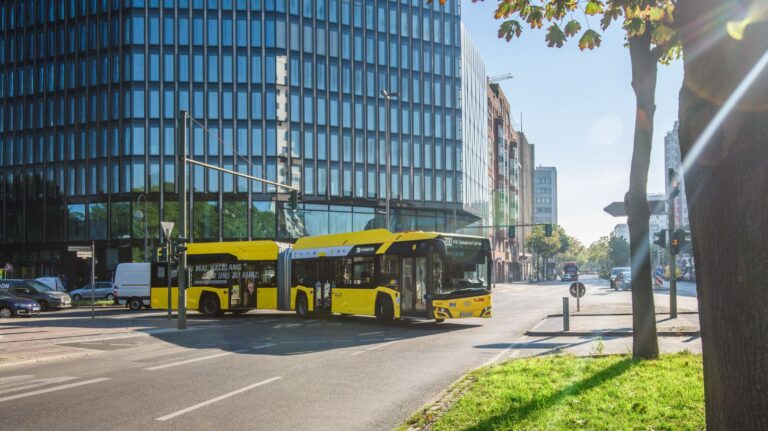German public transport operator BVG Berlin has taken delivery of what is claimed to be the world’s first series-produced electric bus to feature a ‘battery passport’.
The articulated 18m electric bus is part of a larger order for 50 electric buses expected to be fully delivered by 2025.
Each of the buses will come equipped with a so-called battery passport – a digital document that provides comprehensive information on a battery’s origin, composition and environmental impact.
This includes details on the chemical makeup, the presence of critical raw materials such as lithium, cobalt and nickel, and the carbon footprint associated with its production.
For end users such as BVG Berlin, the passport is designed to promote more sustainable battery use, facilitating responsible recycling and supporting efforts to establish a circular economy.
With more than 80% of the EU’s lithium, cobalt and nickel reportedly sourced from outside the region, ensuring responsible raw material use is a growing priority for urban transport networks.
The introduction of the battery passport comes ahead of new EU regulations. As part of Regulation (EU) 2023/1542, the European Parliament and the Council of the European Union will require all electric vehicles sold from 18 February 2027 to include a battery passport.
The measure aims to support better traceability, responsible sourcing and sustainable management of raw materials.





